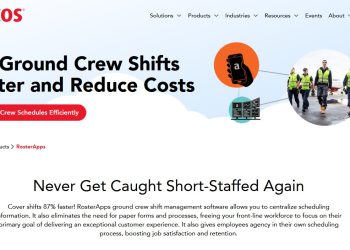Reliable financial management is at the heart of every business, no matter its size. Without it, even the most viable and potentially profitable businesses will crash. Knowing the state of your financial affairs in-depth is one of the best ways to make sure the cash keeps flowing. However, staying on top of your finances means constantly deploying new tactics to avoid unforeseen business debt, having enough money to invest in novelties, and grow your business.
Here are five fresh ways to stay in control of your company’s finances.
#1 Invest in Expense Reimbursement Software
To secure continuous compliance and audit readiness, invest in expense reimbursement software. Automating expense claims – from reports to expense reimbursements gives you a faster and more efficient manner of processing, paying, and auditing employee-initiated expenses.
Furthermore, it ensures that your business complies with regulations and helps you stay on top of company-wide spending at all times. This software simplifies and automates a business’ expense entry, streamlines review, eliminates paper trail, and reduces administrative effort. As a result, you will have more time to focus on more important matters, such as growing your business.
#2 Implement Successful HR Management Practices
Having sound human resource management policies and successfully implementing them is an excellent way of boosting employee satisfaction, performance, and retention. When employees are happy, they want to invest in the company’s goals and are more compelled to work.
In addition, highly engaged employees are more fulfilled and more productive, but they are also more reluctant to change workplaces. As a result, that increases the organization’s overall productivity and profitability and saves the company money on a new hire. Moreover, as HR is often an organization’s biggest expense, implementing successful and efficient HR management practices will also mean reducing staff time, reducing litigation risk, saving money on advertising, and saving money by increasing retention.
#3 Choose Your Business Partners Carefully
Being selective about who you work with is a crucial aspect of having your company’s finances controlled. Can you imagine what would happen with your cash flow if you spent a month fulfilling an order for a customer, only for them to accept the goods and refuse to pay you? Naturally, taking legal action will recover the money you are owed, but that takes time, and it is expensive.
That said, avoid potential partners that are in terrible financial straits. Businesses in the middle of a financial crisis are not the best choice to do business with. Think of it this way – someone who has blatantly mismanaged their business finances may not have the necessary abilities or discipline to make a business partnership work.
#4 Design a Cash Flow Statement and Forecast
This is by no means a new way of controlling your finances. Still, it is a must – to keep a close eye on your business’s cash flow, create a cash flow statement, and forecast. These very easy financial documents can provide you with a view of your actual and forecast monthly cash flow.
The cash flow statement can help you display and see how cash and cash equivalents are affected by changes that occur in your balance sheet accounts. It also gives you a detailed analysis of your operating, investing, and financing activities. On the other hand, a cash flow forecast can help you estimate the amount of money that will flow in and out of your business, along with your projected income and expenses.
#5 Plan for Future Investments
A company striving to grow must always be prepared and has its future roadmap (ensured fixed costs, variable costs, and expenses for contingencies) evaluated and planned. Planning for the future and creating an investment strategy can be difficult.
However, a suitable investment plan is a great way to gain financial security. It can also be an additional way to balance out any existing investments you already have in place. To help you start, make sure you:
- Establish your financial goals,
- Consider an investment time frame,
- Think of an expert’s advice in helping you find an appropriate solution.
Keep in mind that the earlier you begin with any type of investment, the higher the potential to earn money in the long term.
Final Thoughts
Ambition and enthusiasm are essential in doing business. Yet, to be successful in the long run, you need to make rational financial decisions based on reality.
That said, learn the pragmatic approach to doing business. Be aware that making mistakes is a normal part of doing business and growing, but so is the process of employing meaningful ways of controlling and securing your finances. Remember, taking unnecessarily big risks is not a good business practice.







